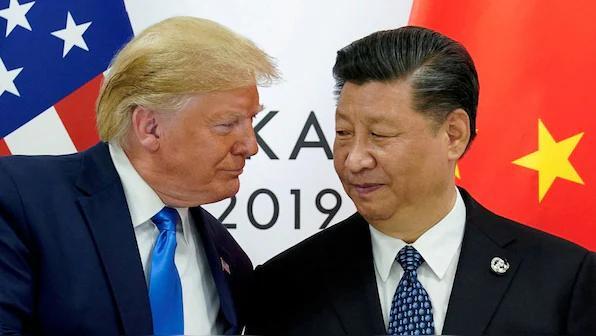
China Refuses to Join Denuclearisation Talks with US & Russia
In a significant development in the ongoing efforts to denuclearise the world, China has refused to join trilateral denuclearisation talks with the United States and Russia. This decision comes after US President Donald Trump called for Beijing’s inclusion in future negotiations. Chinese Foreign Ministry Spokesperson Guo Jiakun stated that the expectation is “neither reasonable nor realistic” as China and the US are not at the same level in terms of nuclear capabilities.
The announcement has sparked concerns about the effectiveness of international efforts to reduce the threat of nuclear weapons. China’s refusal to participate in the talks has raised questions about the country’s willingness to work towards a denuclearised world. In this blog post, we will delve into the reasons behind China’s decision and the implications it has on global efforts to reduce nuclear arms.
Background
The US, Russia, and China are the three countries with the largest nuclear arsenals in the world. The US and Russia have been engaged in a series of talks aimed at reducing their nuclear stockpiles. In October, the US and Russia announced a new arms control pact, which aims to reduce their nuclear arsenals by 2026. China has been watching these developments closely, and its decision to refuse participation in the denuclearisation talks is seen as a significant development.
China’s Reasons
Guo Jiakun, the Chinese Foreign Ministry Spokesperson, stated that China’s nuclear capabilities are significantly lower than those of the US and Russia. According to the Stockholm International Peace Research Institute (SIPRI), China has approximately 280 nuclear warheads, compared to the US’s 3,800 and Russia’s 3,500. Guo argued that China’s smaller nuclear arsenal makes it impossible for the country to participate in talks that are focused on reducing nuclear stockpiles.
China’s decision is also seen as a response to the US’s recent attempts to pressure the country to reduce its nuclear capabilities. In 2018, the US Department of Defense released a report that accused China of increasing its nuclear capabilities, including the development of new nuclear warheads and ballistic missiles. China has denied these allegations, but the report has added to tensions between the two countries.
Implications
China’s refusal to participate in the denuclearisation talks has significant implications for global efforts to reduce nuclear arms. The US and Russia have been the primary drivers of nuclear disarmament efforts, and China’s refusal to participate may hinder progress in this area.
One of the main concerns is that China’s refusal to participate may lead to a breakdown in nuclear arms control talks between the US and Russia. The US and Russia have been engaged in a series of talks aimed at reducing their nuclear stockpiles, and China’s refusal to participate may make it more difficult for the two countries to reach an agreement.
Another concern is that China’s refusal to participate may lead to an increase in nuclear tensions between the US and China. The US has been critical of China’s nuclear modernisation efforts, and the country’s refusal to participate in denuclearisation talks may be seen as a sign of China’s unwillingness to work towards a nuclear-free world.
Conclusion
China’s refusal to participate in denuclearisation talks with the US and Russia is a significant development in the ongoing efforts to reduce the threat of nuclear weapons. While China’s decision is seen as a response to the country’s smaller nuclear arsenal, it may have significant implications for global efforts to reduce nuclear arms.
The US and Russia must now decide whether to continue with their nuclear disarmament efforts without China’s participation or to try to persuade China to join the talks. The international community is watching these developments closely, and the outcome will have significant implications for global security.
News Source:



